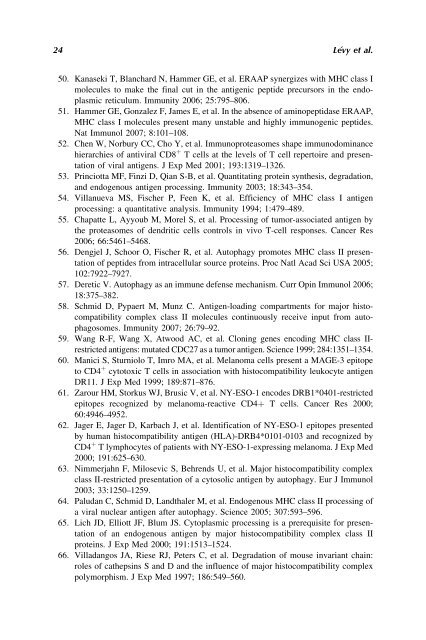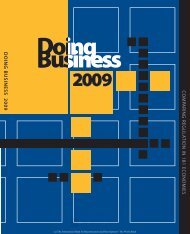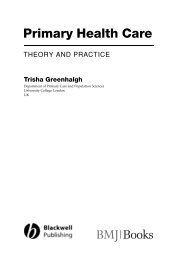Download File - JOHN J. HADDAD, Ph.D.
Download File - JOHN J. HADDAD, Ph.D.
Download File - JOHN J. HADDAD, Ph.D.
Create successful ePaper yourself
Turn your PDF publications into a flip-book with our unique Google optimized e-Paper software.
24 Lévy et al.<br />
50. Kanaseki T, Blanchard N, Hammer GE, et al. ERAAP synergizes with MHC class I<br />
molecules to make the final cut in the antigenic peptide precursors in the endoplasmic<br />
reticulum. Immunity 2006; 25:795–806.<br />
51. Hammer GE, Gonzalez F, James E, et al. In the absence of aminopeptidase ERAAP,<br />
MHC class I molecules present many unstable and highly immunogenic peptides.<br />
Nat Immunol 2007; 8:101–108.<br />
52. Chen W, Norbury CC, Cho Y, et al. Immunoproteasomes shape immunodominance<br />
hierarchies of antiviral CD8 þ T cells at the levels of T cell repertoire and presentation<br />
of viral antigens. J Exp Med 2001; 193:1319–1326.<br />
53. Princiotta MF, Finzi D, Qian S-B, et al. Quantitating protein synthesis, degradation,<br />
and endogenous antigen processing. Immunity 2003; 18:343–354.<br />
54. Villanueva MS, Fischer P, Feen K, et al. Efficiency of MHC class I antigen<br />
processing: a quantitative analysis. Immunity 1994; 1:479–489.<br />
55. Chapatte L, Ayyoub M, Morel S, et al. Processing of tumor-associated antigen by<br />
the proteasomes of dendritic cells controls in vivo T-cell responses. Cancer Res<br />
2006; 66:5461–5468.<br />
56. Dengjel J, Schoor O, Fischer R, et al. Autophagy promotes MHC class II presentation<br />
of peptides from intracellular source proteins. Proc Natl Acad Sci USA 2005;<br />
102:7922–7927.<br />
57. Deretic V. Autophagy as an immune defense mechanism. Curr Opin Immunol 2006;<br />
18:375–382.<br />
58. Schmid D, Pypaert M, Munz C. Antigen-loading compartments for major histocompatibility<br />
complex class II molecules continuously receive input from autophagosomes.<br />
Immunity 2007; 26:79–92.<br />
59. Wang R-F, Wang X, Atwood AC, et al. Cloning genes encoding MHC class IIrestricted<br />
antigens: mutated CDC27 as a tumor antigen. Science 1999; 284:1351–1354.<br />
60. Manici S, Sturniolo T, Imro MA, et al. Melanoma cells present a MAGE-3 epitope<br />
to CD4 þ cytotoxic T cells in association with histocompatibility leukocyte antigen<br />
DR11. J Exp Med 1999; 189:871–876.<br />
61. Zarour HM, Storkus WJ, Brusic V, et al. NY-ESO-1 encodes DRB1*0401-restricted<br />
epitopes recognized by melanoma-reactive CD4þ T cells. Cancer Res 2000;<br />
60:4946–4952.<br />
62. Jager E, Jager D, Karbach J, et al. Identification of NY-ESO-1 epitopes presented<br />
by human histocompatibility antigen (HLA)-DRB4*0101-0103 and recognized by<br />
CD4 þ T lymphocytes of patients with NY-ESO-1-expressing melanoma. J Exp Med<br />
2000; 191:625–630.<br />
63. Nimmerjahn F, Milosevic S, Behrends U, et al. Major histocompatibility complex<br />
class II-restricted presentation of a cytosolic antigen by autophagy. Eur J Immunol<br />
2003; 33:1250–1259.<br />
64. Paludan C, Schmid D, Landthaler M, et al. Endogenous MHC class II processing of<br />
a viral nuclear antigen after autophagy. Science 2005; 307:593–596.<br />
65. Lich JD, Elliott JF, Blum JS. Cytoplasmic processing is a prerequisite for presentation<br />
of an endogenous antigen by major histocompatibility complex class II<br />
proteins. J Exp Med 2000; 191:1513–1524.<br />
66. Villadangos JA, Riese RJ, Peters C, et al. Degradation of mouse invariant chain:<br />
roles of cathepsins S and D and the influence of major histocompatibility complex<br />
polymorphism. J Exp Med 1997; 186:549–560.

















